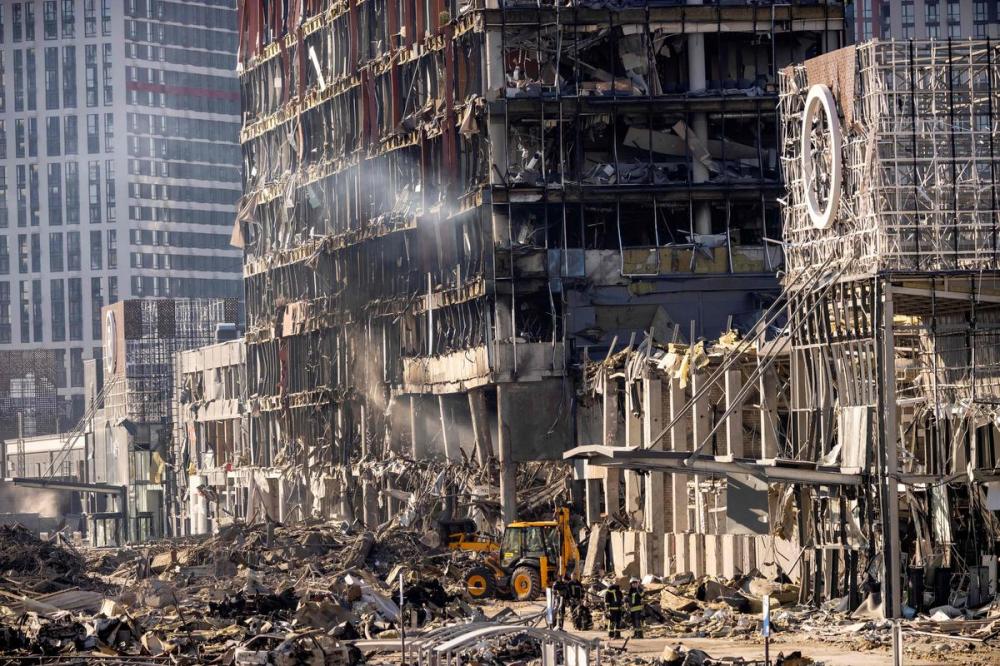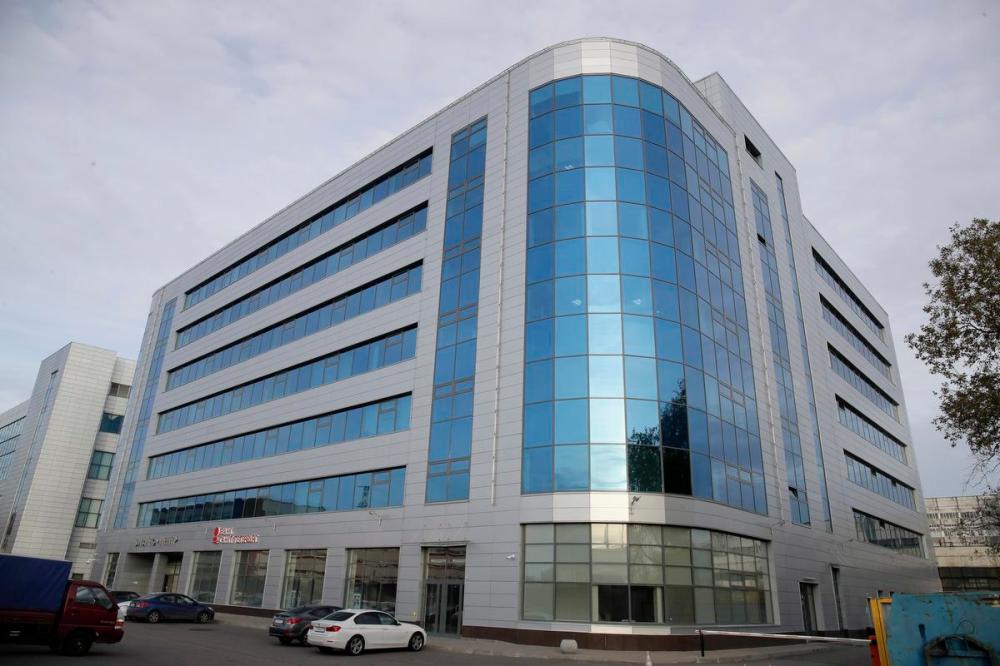What Russia’s troll factories are saying about Ukraine
Advertisement
Read this article for free:
or
Already have an account? Log in here »
To continue reading, please subscribe:
Monthly Digital Subscription
$0 for the first 4 weeks*
- Enjoy unlimited reading on winnipegfreepress.com
- Read the E-Edition, our digital replica newspaper
- Access News Break, our award-winning app
- Play interactive puzzles
*No charge for 4 weeks then price increases to the regular rate of $19.00 plus GST every four weeks. Offer available to new and qualified returning subscribers only. Cancel any time.
Monthly Digital Subscription
$4.75/week*
- Enjoy unlimited reading on winnipegfreepress.com
- Read the E-Edition, our digital replica newspaper
- Access News Break, our award-winning app
- Play interactive puzzles
*Billed as $19 plus GST every four weeks. Cancel any time.
To continue reading, please subscribe:
Add Free Press access to your Brandon Sun subscription for only an additional
$1 for the first 4 weeks*
*Your next subscription payment will increase by $1.00 and you will be charged $16.99 plus GST for four weeks. After four weeks, your payment will increase to $23.99 plus GST every four weeks.
Read unlimited articles for free today:
or
Already have an account? Log in here »
Hey there, time traveller!
This article was published 22/03/2022 (1361 days ago), so information in it may no longer be current.
Canada recently removed Russia’s English and French broadcaster RT, formerly known as Russia Today, from the airwaves. But the everyday march of Russian President Vladimir Putin’s trolls continues.
They exist on Twitter, Facebook and other realms of the internet, acting as attack dogs for the Russian government. Social-media trolls spreading Kremlin propaganda or disinformation have become ubiquitous online, and the ongoing war in Ukraine has pulled the issue of Moscow’s attempts to influence public opinion and undermine democracy into the attentions of more people.
To better understand these operations, the Star spoke with Finnish journalist and author Jessikka Aro, whose book “Putin’s Trolls” examines the Kremlin’s use of media to sow chaos around the world. Aro was in Ottawa this week to speak at the Russian Cognitive Warfare conference.

Aro said Russian trolls and propaganda have been responsible for boosting Donald Trump, conspiracy theories around coronavirus, and accusations of Ukrainian leaders being Nazis, among other things.
What are these trolls spreading?
They are specifically, at the moment, obviously obsessed with Ukraine. Claiming that Russia is only defending Russians from a genocide conducted by Ukrainians in eastern Ukraine.
(They are) trying to create the idea that Russia is not waging war in Ukraine; it’s the EU and NATO and even the U.S. who are actually guilty of the warfare in Ukraine. The Ukrainian president is a warmonger, Putin loves peace and negotiations, this is the material that the trolls were writing (since 2014) and are still writing.
They are given different themes every day, every morning to write about and that’s why they also operate 24/7 so that they can attack any online conversation when they take place.
Throughout the years the trolls have attacked, for example, obviously the U.S. presidential election in 2016. Prior to that they, of course, promoted Donald Trump. They did really interesting microtargeting operations using Facebook in which they targeted specifically people from swing states.
What is the objective?
The material is super violent, it is targeted for the receiver’s brain. It is meant to cause changes in the recipients’ ideas and attitudes and even behaviour. So far, it seems that online debates have become, obviously, more aggressive. There are many believers of these stories who are even more enthusiastic to defend the Kremlin’s policies and to spread the idea, for example, the Ukrainian so-called “Nazis” and fascist regimes asked for it and that (Ukrainians) are now being liberated by Russian forces.
Obviously, there are people who are susceptible to this type of material and who become even more brainwashed than they were before. Simultaneously, what Russia is doing to Ukraine at the moment is too much for part of the communities who previously support the Kremlin and previously believed the material that it was spreading. Now some of the support has vanished.
Who are the target audiences?
Kremlin’s propaganda and troll material doesn’t need to be directed at Canadians per se. It is enough that it is out there because there are certainly so many Canadians who become victims of the material, no matter if it was specifically directed for them or not.
That’s why it’s so dangerous, and Russia’s quite good at communicating these propaganda messages in so many different platforms that it’s easy for being to become influenced even when (you) are not a direct target group. That doesn’t mean that the Kremlin does not have specifically targeted audiences in Canada.
Who are these trolls?
When me and my colleagues investigated a known troll factory in St. Petersburg — this was February 2015 — there were said to be around 400 people working in that one office. They were kids in their 20s, they were paid a decent salary.
People who work in these operations, they don’t know what they’re doing. They aren’t told “we are now hiring you to operate as social-media propagandists.” I saw those job advertisements, they were by a company called Internet Research Agency that was looking for people, for example, social-media managers, copywriters. These are normal jobs.

Of course, the nature of the job is then only revealing itself during the course of time when one works there. These are regular kids and what the troll workers exposed, themselves, was that many people only last for a couple of months in these factories then they leave because it is just too much. There is only a very small minority of the workers who actually do it because they love the work.
Does this end if Putin is overthrown?
Unfortunately, it seems that this method is found so fruitful in Russian leadership that whoever is the next Putin who takes over will continue using it.
What’s happening in the West and how western people are brainwashed by Putin’s regime — it’s only continuing from what Putin and his regime have done to the Russian people.
What is the answer to this?
Back in 2016 I labelled Russian trolls and social-media propaganda a national security threat to many countries. Unfortunately, in operation Facebook and Twitter as well as YouTube are kind of like enablers. They have a certain massive responsibility, however, they are not taking that responsibility.
They have continuously lobbied for their interest not to do anything about it. It’s so difficult because some of this troll material is basically criminal. It’s threats and libel and all kinds of communications crimes. So, the problem is then when Russian trolls spread this and agitate real people in different countries to spread such material, then all of this is being left to be cleaned up, kind of, and taken care of by local countries’ police or intelligence services, when in fact it should be Facebook, Twitter and YouTube disabling that material from spreading altogether.
Only now, when Russia has physically attacked a sovereign country in Ukraine, there have been public (statements) and comments by Facebook as well as Google/YouTube that they will start demonetizing some of these Russian state media channels.
Which is so crazy — that kind of gives up the explanation of why they have been hesitant so far, because it makes them money. They still let them operate, but they just don’t take the money anymore.
This interview has been edited for length and clarity.
Jeremy Nuttall is a Vancouver-based investigative reporter for the Star. Follow him on Twitter: @Nuttallreports



